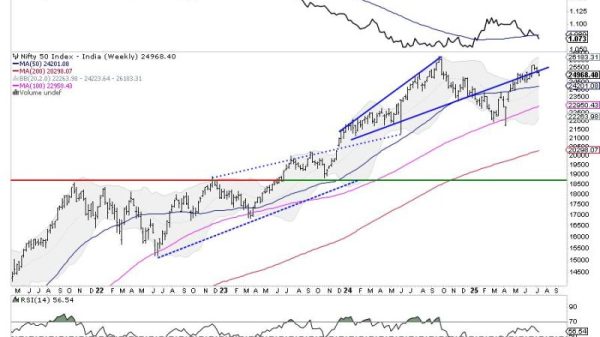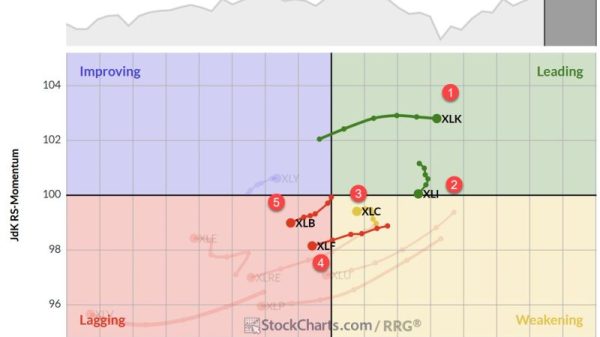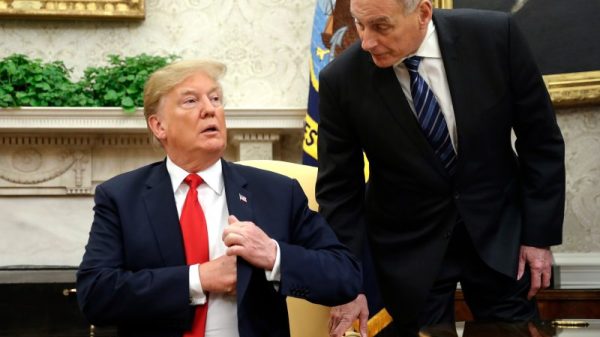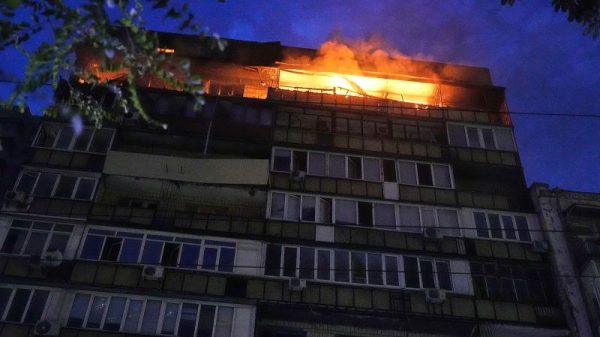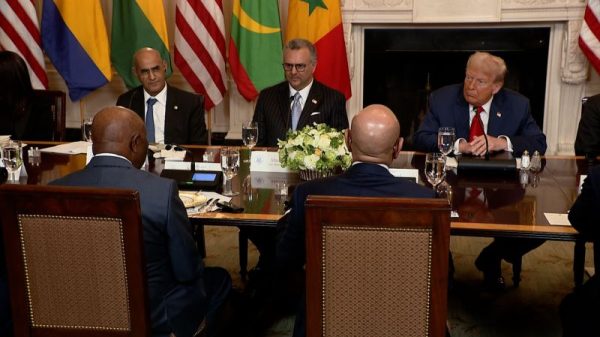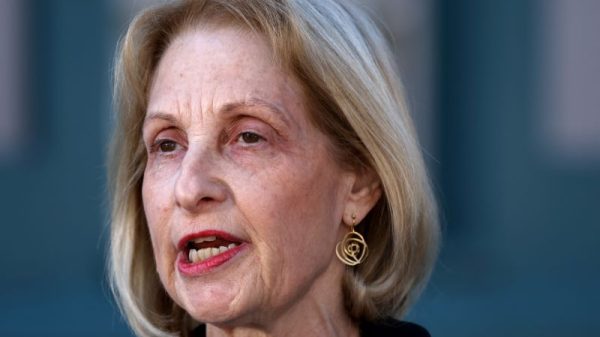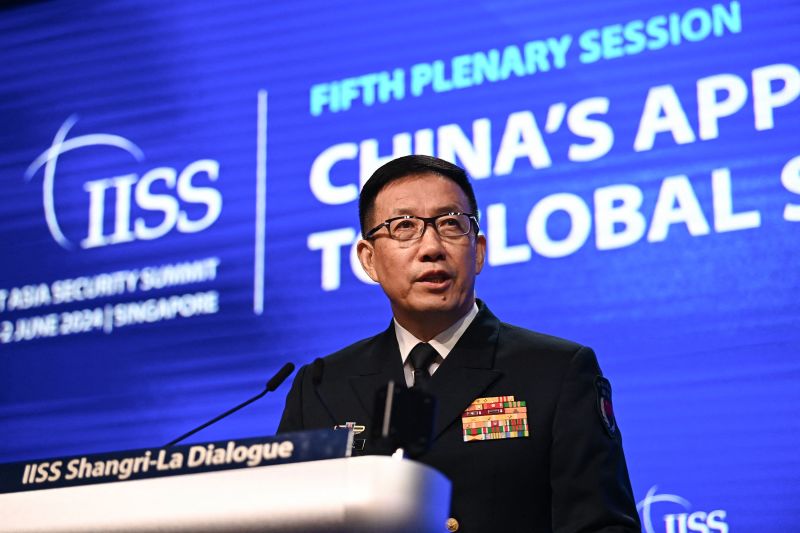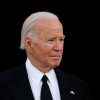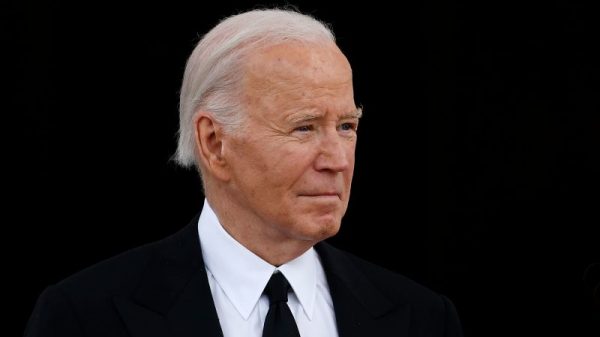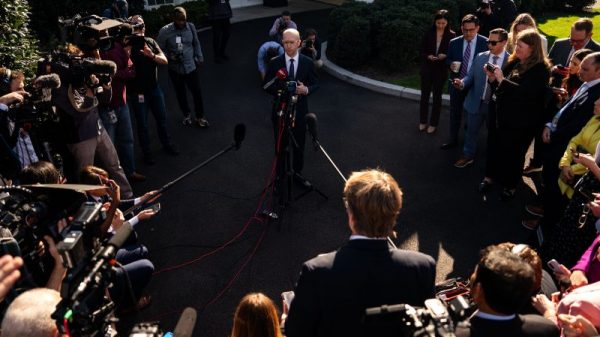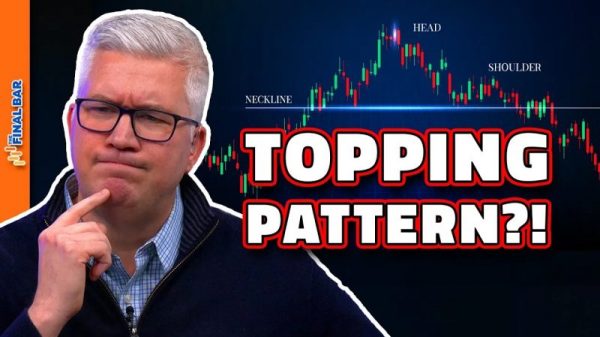Taiwan is pursuing independence incrementally and those who support it will “end up in self-destruction,” China’s new defense minister warned Sunday in a wide-ranging speech at a security summit in Singapore where the extent of regional tensions was on stark display.
Minister of National Defense Adm. Dong Jun made the comments in a roughly 30-minute speech which comes days after Beijing staged major military exercises encircling the island of Taiwan after it inaugurated its new, democratically elected president last month.
“We will take resolute actions to curb Taiwan independence and make sure such a plot never succeeds,” Dong said speaking through a translator, while slamming “external interfering forces” for selling arms and having “illegal official contacts” with Taiwan, in an apparent reference to the United States, which maintains close, unofficial ties with Taiwan.
“China stays committed to peaceful reunification. However, this prospect is increasingly being eroded by separatists for Taiwan independence and foreign forces,” Dong warned.
His comments come as there has been heightened concern in the region over Beijing’s military and economic intimidation of Taiwan, which has grown more pronounced under Chinese leader Xi Jinping.
In a meeting with Dong on Friday, US defense chief Lloyd Austin called on China not to “use Taiwan’s political transition — part of a normal, routine democratic process — as a pretext for coercive measures.”
China’s ruling Communist Party claims the self-governing democracy as its own, despite never having controlled it and has vowed to “reunify” with it, by force if necessary. Taiwan’s new President Lai Ching-te and his party, the Democratic Progressive Party (DPP), are both openly loathed by Beijing for championing Taiwan’s sovereignty.
Lai has said he favors the current status quo, proclaiming that “Taiwan is already an independent sovereign country” so there is “no plan or need” to declare independence. The US also by longstanding policy does not support Taiwan independence nor the unilateral change of the status quo across the Taiwan Strait.
“The DPP authorities in Taiwan are pursuing separation in an incremental way. They are bent on erasing their Chinese identity of Taiwan and severing social, historical and cultural links across the Taiwan Strait,” Dong said, reiterating Beijing’s rhetoric that they would be “nailed to the pillar of shame in history.”
Polls show growing numbers of the island’s people – especially young people – view themselves as distinctly Taiwanese and have no desire to be part of China, an authoritarian one-party state compared to Taiwan’s democracy. Less than 10% now support an immediate or eventual unification, and only 3% identify primarily as Chinese – while 67% see themselves as primarily Taiwanese.
Taiwan called Dong’s comments in Singapore “provocative and irrational.”
“Any… coercive actions that disregard public opinion run contrary to democracy and human rights, or any resort to war will eventually be counterproductive,” Taiwan’s Mainland Affairs Council said in a statement.
Dong, a former naval commander, is making his debut at the Shangri-la Dialogue security summit after being appointed to his position late last year following a surprise shake-up at the top of China’s Defense Ministry.
The gathering plays out amid a contentious security landscape across the region, where China is widely seen by its neighbors as using its military might to assert disputed territorial claims and bid for military prominence in a part of the world where the US has deep security ties.
Chinese vessels and aircraft have been widely documented patrolling and making aggressive maneuvers against others operating in international waters and skies as it asserts disputed claims in the East and South China Seas.
But Dong painted a different vision of China in his speech, framing it as a benign power whose military “never acts from the so-called position of strength,” while taking oblique aim at the US saying, “we will not allow anyone to bring geopolitical conflicts or any war, whether hot or cold to our region.”
A ‘limit’ to restraint
The Chinese defense chief also said there was a “limit to” China’s restraint when it comes to “provocations” in the South China Sea, making an apparent reference to US treaty ally the Philippines, which Dong did not name directly.
A “certain country” was “emboldened” by outside powers and had “made mediated provocations,” Dong said, while indirectly referencing the deployment of an American missile system during military drills in the Philippines in April.
China has militarized islands in the disputed South China Sea, and in recent months its coast guard has fired water cannons and sought to counter Philippine vessels operating in disputed areas, further ratcheting tensions in the key strategic waterway.
China claims historic rights to the bulk of the South China Sea, despite a 2016 ruling at an international tribunal in The Hague ruled in favor of the Philippines against that claim.
Dong’s comments come after Philippine President Ferdinand R. Marcos Jr on Friday denounced illegal, coercive and aggressive actions in the South China Sea at the opening of the same defense forum in Singapore. He also warned that the death of any Filipino citizen at the hands of another country in the South China Sea would be “very close” to an act of war.
The Chinese defense chief also pushed back against concerns voiced by the US that dual-use exports from China are bolstering Russia’s defense industrial base as it wages war in Ukraine.
“We have never provided weapons to either party of the conflict. We have put stricter control on the export of dual-use items and have never done anything to fan the flames,” Dong said.
The issue was raised during a meeting between Dong and US counterpart Austin – the first face-to-face talks between US and Chinese defense since 2022, with Austin indicating to China that there would be consequences if Beijing continues to support Russia militarily.
Dong said China “stays open to exchanges and cooperation with the US military.”
The annual security forum in Singapore – which is hosted by the International Institute for Strategic Studies (IISS) – is a rare gathering of senior military officials from across the Asia-Pacific region, including those who are geopolitical rivals or view each other warily.
It is also a rare opportunity to hear from, and pose questions to, senior Chinese military leaders.
Many of the questions directed at Dong from delegates revolved around China’s increased assertiveness throughout the region, particularly towards Taiwan and in the disputed South China Sea.
“The strategic environment in Asia has actually got more tense and I think we saw that in the Chinese defense minister’s speech today,” Ward said.
“The tone was far harder this year than it was last year,” he added.
Meanwhile a senior US official had the following assessment.







